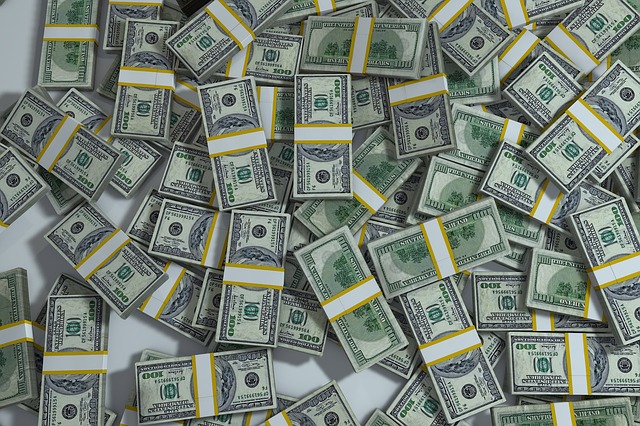It’s been months and investors are tired of asking the same old question: Will the Fed raise interest rates or will it hold off for another time? The consensus seems to be that the Fed can hold back no longer and the hike will definitely happen.
Wall Street experts seem confident that a rate hike is imminent, with 49 percent surveyed agreeing that the central bank will make the move.
a 3% interest hike would send a message of confidence …saying the economy is strong it can handle normal interest rates.
Jim Grant, market maker and editor of Grant's Interest Rate Observer believes that Fed Chair Janet Yellen has had enough of the subject and that she will go ahead with the rate increase in order to just put an end to the discussion. Grant sees a .25 point hike.
3% Increase Suggested
Morgan Creek Capital Management CEO Mark Yusko, however, believes that the Federal Reserve should stop taking baby steps and should raise interest rates to 3 percent in one fell swoop. He argues that although such a move would shock the markets, "it would send a message of confidence …saying the economy is strong it can handle normal interest rates."
Taking an opposing view, Torsten Slok, chief international economist at Deutsche Bank, thinks the Fed should hike rates, but doesn't think it will. Instead, he believes the central bank will hold off, but send hawkish signals instead.
Meanwhile, markets have already reacted to whatever they understand the outcome to be. Asian stock markets rose today on speculation that the Federal Reserve will resist the pressure to hike interest rates and the FTSE 100 index of leading UK shares has dipped by 12 points, or 0.2%, in early trading.
New Questions
Speculation abounds but by 18:00 GMT today, we should all know the answer. And then, the big questions will be: What effects will the rate increase have both locally and internationally? What will the markets do now? How will the dollar react?
No matter how the Fed votes, some analysts are anticipating major market moves. Some expect to see a short-term rally which is what has happened as a matter of course whenever a rate hike was introduced in the past. According to them, a hike is not an indication of the end of the bull market but the next phase in economic expansion.
Others see a rate hike bringing with it a bull market where bond yields will climb and the economy will slip into a recession. They point to these reactions preceeding past recessions. But outside factors play an important part in today’s financial scenario and most economists have avoided discussion of a recession.
Hike Effects on U.S. Consumers
What are the effects for the individual consumer if the Fed raises the interest rate?
Because many lending institutions look to the fed funds rate to determine where they should set their interest rates, the most obvious effect of the hike will be increased borrowing charges on all types of debt including bank loans, mortgages, car loans and credit cards. Bankers are the first to remind consumers that a small interest rate increases will have such a minimal result as to be hardly felt at all.
On the other hand, higher rates can be good news for savers. Yields on basic bank savings accounts and certificates of deposit have been so low for so long that even a small increase should not be taken for granted.
Bond holders, however, are advised to move with caution. When interest rates go up, bond yields lose their value. Investment managers suggest holding onto long term bonds and keeping some short term bonds as a hedge against stock market risk.
Emerging Markets
Reactions across the globe will be most affected by a rate hike, predominantly from emerging markets such as Mexico, or India which are especially sensitive to higher interest rates and the stronger dollar. Officials from these economies believe that even the smallest rate increase would benefit their economies.
Wall Street investors don’t seem to be worried about a sell off the day after and have more or less kept their portfolios in tack. Bob Lang, a technician, founder and senior strategist at ExplosiveOptions.net presents a bullish case for the euro, which is great news for U.S. industrials, drug companies and consumer packaged goods firms. He foresees that the euro could have a huge rally in the very near future regardless of what the Fed decides and if the Fed does not raise rates, he believes “this could cause the euro, and even the yen, to roar.”
A strong dollar can cause major havoc on all U.S.-based international companies because when they translate sales from weak currencies overseas, these companies end up with fewer dollars. Jim Cramer, editor of Mad Money, believes investors should be paying more attention to foreign exchange rates versus the U.S. dollar because even a small increase in the rate could have major impact on currencies around the globe. 
According to Cramer, "Whether or not we get a rate hike is a gigantic deal for 2015, and it will certainly matter to the trajectory of the dollar, not to mention a host of foreign currencies, especially the ones from smaller emerging market countries."
At the end of the day, no one has a crystal ball and can foresee the future. If there is no rate hike today, when will it be? And what are the different effects of raising the rate or keeping the status quo? There are just too many factors at play to predict the outcome of what has been touted as one of the most important decisions of the last eight years.

